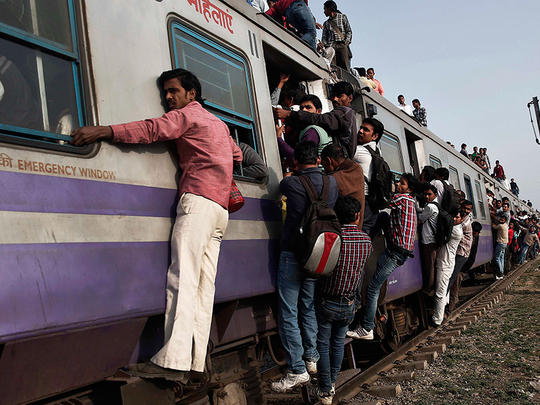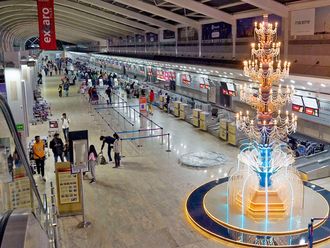
NEW DELHI: In a clear departure from tradition, railways minister Suresh Prabhu did not announce starting new trains while laying emphasis on overall improvement of the Indian railways.
Presenting his maiden railway budget Thursday, Prabhu listed cleanliness, safety, modernisation of existing infrastructure and making railways financially self sustainable as his four goals and did not hike passenger fares much against expectations.
“I have not increased passenger fares. We are directing our efforts to make travel on Indian railways a happy experience with a mix of various initiatives,” Prabhu said during his 70-minute speech.
Indian railways incurs loss of approximately Rs260 billion (Dh15.5 billion) annually by selling passenger tickets on a subsidised rate and cross subsidises it by freight fares, which is among the highest in the world. Prabhu announced increase in freight rates of up to 10 per cent in his budget.
He did not even announce any new train services and announced that a review was on about the capacity to add more trains on existing tracks. New trains, if feasible, will be announced after completion of the review process.
“#RailBudget2015 is a forward looking, futuristic & passenger centric budget, combining a clear vision & a definite plan to achieve it,” Prime Minister Narendra Modi whose distinct imprint was visible on the railway budget tweeted.
“For the 1st time there is a concrete vision for technology upgradation & modernisation of the Railways,” Modi said in another tweet.
Taking forward Modi’s pet Clean India Campaign a step forward, Prabhu announced replacement of 17,000 existing toilets in trains with bio toilets, building new toilets at 650 stations across the country and hiring private agencies to keep trains and railway stations clean. Besides carrying forward Modi’s clean India call, echoes of Modi’s two other pet dreams of digital India and Make in India campaigns also figured prominently in Prabhu’s budget.
Increasing speeds of the existing trains from the average speed of 70 to 140km, Prabhu announced increase of speed on certain corridors to 160 to 200km per hour.
“Over the next five years, the railway has to go through a transformation,” Prabhu said, announcing investment of Rs. 8.5 trillion over the next five years. He said the vicious cycle of underinvestment in railways must end as it was bleeding the railways.
Among the new goals set by Prabhu in the new financial year starting April 1 include increasing daily passenger carrying capacity from 21 million to 30 million, increasing track length by 20 per cent from 114,000km to 138,000km and increase freight carrying capacity from 1 billion to 1.5 billion tonnes.
Some of the passenger friendly gestures announced include allowing advance reservation from 60 days before travel to 120 days, making sure one is not required to spend more than five minutes in purchasing ticket for those travelling in general compartments, installation of CCTV cameras in some important trains and ladies compartments of Mumbai’s local trains, launch of mobile apps and a dedicated toll free number 138 to lodge complains against any service, Wi-Fi on tier-B railway stations and starting toll free number 183 on which women commuters can complain in case their security is under threat.












